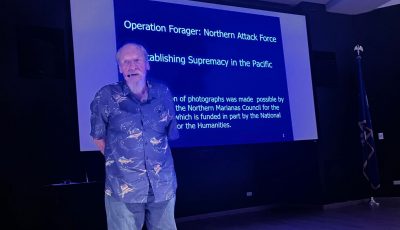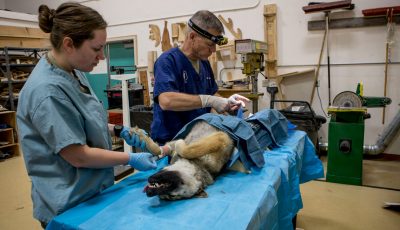New lawsuit challenges denial of voting rights in US territories
Six U.S. citizens living in Guam, Puerto Rico, and the U.S. Virgin Islands filed a federal lawsuit yesterday challenging federal and state laws that deny them the right to vote for President and voting representation in Congress while protecting full enjoyment of the right to vote of similarly situated citizens living in other U.S. territories and in foreign countries.
Joining in the lawsuit is a Guam-based veterans organization, Iraq Afghanistan and Persian Gulf Veterans of the Pacific, and the League of Women Voters of the Virgin Islands.
“One year out from the 2016 presidential election, this lawsuit highlights the injustice and absurdity that in 2015 Americans are still being disenfranchised because of where they live,” said Neil Weare, president and founder of We the People Project, which advocates for equal rights and representation for the over 4 million U.S. citizens living in U.S. territories.
The lawsuit is part of a broader effort We the People Project kicked off on Veterans Day to advocate for full voting rights for every American, whether one lives in a state, territory, or the District of Columbia. With the 2016 presidential election cycle in full swing, We the People Project is calling to build on the 23rd Amendment (right to vote for President in DC) to guarantee representation and the right to vote for President to all Americans, wherever they live.
“The U.S. Constitution has already been amended once to protect the right to vote for U.S. citizens living in non-state areas. With more than 4 million Americans continuing to be disenfranchised because they live in a U.S. territory, it is time to again expand the right to vote through a constitutional amendment,” Weare said.
New lawsuit
Under the federal Uniformed and Overseas Citizens Absentee Voting Act and Illinois’ Military and Overseas Voter Empowerment law, a former resident of Illinois who is now a resident of the Northern Mariana Islands, American Samoa, or a foreign country can continue voting for President and voting representation in Congress in Illinois by absentee ballot. But plaintiffs—each a former resident of Illinois—have lost full enjoyment of their right to vote by virtue of living in Puerto Rico, Guam, or the U.S. Virgin Islands.
“Equal protection does not permit Congress or the states to protect the right to vote for certain Americans living overseas while denying it to others,” said Leevin Camacho, who represents plaintiffs along with We the People Project, Geoffrey Wyatt, who is based in Washington, D.C., and attorneys in Puerto Rico and the Virgin Islands. “Our goal with this lawsuit is to bring us one step closer to making sure everyone in Guam has full enjoyment of the right to vote.”
Lead plaintiff Luis Segovia, who lives with his wife Lulene Baza Segovia in Yoña, served an 18-month tour in Iraq with the U.S. Army, a 12-month tour in Afghanistan with the Illinois National Guard, and a 10-month tour in Afghanistan as part of the Guam National Guard. In Iraq, he helped provide security for the 2005 Iraqi elections. He was deployed on his second tour to Afghanistan just months after the 2012 presidential elections, unable to vote for President.
“On Veterans Day, it’s hard to be treated like I am good enough to risk my life defending democracy, but not good enough to vote for my commander-in-chief,” said Segovia, who is currently a staff sergeant in the Guam National Guard and who also serves in the civilian security forces for the U.S. Navy.
“So long as you are a U.S. citizen, where you live shouldn’t have anything to do with whether your fundamental right to vote is protected,” said Anthony Bunten, a veteran who lives with his wife, Barbara Perez Hattori, and their family in Piti.
“Every step forward when it comes to voting rights means more political power for Guam veterans in Washington,” said Rodney Cruz Jr., president and Founder of IAPGVP and himself a veteran of Operation Iraqi Freedom. “We must work toward equal representation and the right to vote, because otherwise it’s like we have both hands tied behind our back as we work with the federal government to address our veterans’ health care crisis and other important issues facing our community. If successful, this case will allow us to say to leaders in Washington: give us all the right to vote, or those of us who can vote absentee will make sure we vote against you.”
New push
Although the U.S. Constitution has already been amended once to provide federal voting rights to residents of non-state areas, the path to a constitutional amendment is always steep. In order to help create support for a new voting rights amendment, We the People Project is calling on the public to:
1) Go to www.EquallyAmerican.org to sign their Equal Rights Petition, or take the Right to Vote Survey at www.RepresentGuam.com to support the right to vote, wherever you live.
2) Call on Guam’s officials to support a constitutional amendment to guarantee representation and the right to vote for President to all Americans, wherever they live.
3) For residents of Guam, make support of a new voting rights amendment a litmus test for presidential candidates seeking your vote in the Primary.
4) For people living stateside with ties to Guam, make support of a new voting rights amendment a litmus test for presidential candidates seeking your vote in the primary and general elections.
We the People Project has been working closely with Guam Delegate Madeleine Bordallo in Washington, D.C., to push for expanded voting rights for the people of Guam.
“Voting is the most basic of rights in our representative democracy. The people of Guam and other U.S. territories deserve full voting representation in Congress and the right to vote for our President. I hope that presidential candidates will advocate for equal voting rights for Americans living in the territories. As the presidential candidates look to garner the territories’ support in the primaries and caucuses, I urge them to support full voting rights for the Americans in the territories,” Bordallo said.
“So long as Guam is a part of the United States, with our people fighting and dying to defend American democracy, we should have full enjoyment of the right to vote. We must continue working to address our political status through self-determination, but in the meantime it doesn’t mean we should be disenfranchised—that’s the opposite of self-determination,” added Leevin Camacho.
The population of the five U.S. territories exceeds 4 million, which is greater than nearly half the states, and larger than the five smallest states combined. The territories also have a history of service and sacrifice to the United States, with more than 150,000 veterans currently living in U.S. territories.
Politically, each of the territories has a history for voting across party lines. Both Guam and the CNMI currently have Republican governors but Democratic non-voting delegates to Congress. The situation is reversed in American Samoa, with a Democratic governor and a Republican non-voting delegate. The Virgin Islands has an independent governor (who is a former Republican), and a Democratic non-voting delegate. While the current Puerto Rico governor is a Democrat, its immediate past governor is a Republican.
There is also a territorial diaspora of than 5 million Americans living in the states who have ties to the territories, whether through family or having actually lived in a territory. There are now Chamorros or other former Guam residents who live in states and congressional districts across the United States, and they can support their friends and family in Guam who cannot yet vote by exercising their right to vote next November for candidates who support a voting rights amendment for the territories. (We the People Project)



























